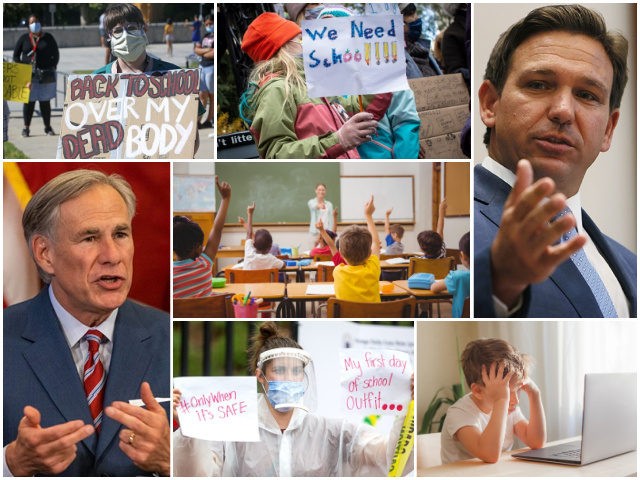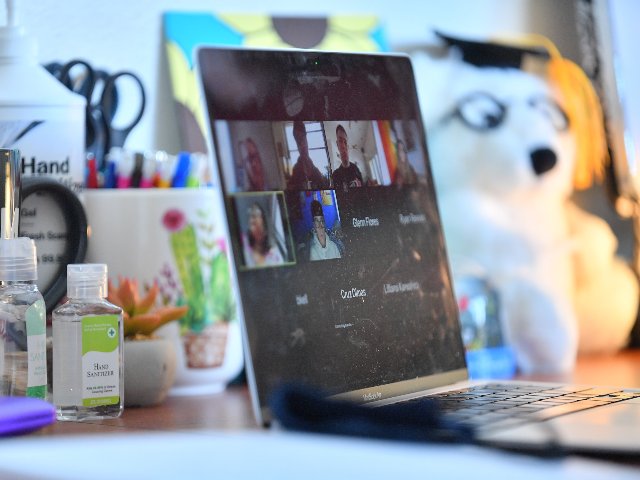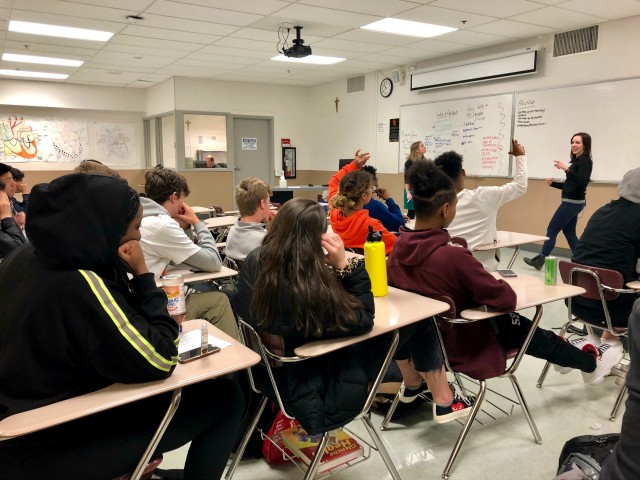A report issued by a team of researchers from institutions including Harvard University found that economic and racial learning gaps in states such as Texas and Florida did not widen due to schools largely maintaining in-person classes during the Chinese coronavirus pandemic. Harvard Professor Thomas Kane explains: “Where schools remained in-person, gaps did not widen. Where schools shifted to remote learning, gaps widened sharply. Shifting to remote instruction was like turning a switch on a critical piece of our social infrastructure that we had taken for granted.”
In November 2020, for example, Florida Gov. Ron DeSantis (R) announced that schools were required to remain open for in-person learning in the spring as the state continued to battle the coronavirus.
As a result of maintaining in-person classes, schools lost little ground academically, according to the study, which also noted that high-poverty schools in America held many fewer in-person classes, and suffered large losses in achievement due to the increase in remote learning.
Now, experts are predicting that these results will foreshadow a widening of the racial and economic achievement gap in the United States.
The report was a joint effort of the Center for Education Policy Research at Harvard University, the National Center for Analysis of Longitudinal Data in Education Research at the American Institutes for Research, and NWEA, an educational research nonprofit.
“We found that districts that spent more weeks in remote instruction lost more ground than districts that returned to in-person instruction sooner,” Thomas Kane, Walter H. Gale Professor of Education and Economics at Harvard Graduate School of Education, told the Gazette.
“Anyone who has been teaching by Zoom would not be surprised by that,” Kane continued. “The striking and important finding was that remote instruction had much more negative impacts in high-poverty schools. High-poverty schools were more likely to go remote and their students lost more when they did so.”
“To give you a sense of the magnitude: In high-poverty schools that were remote for more than half of 2021, the loss was about half of a school year’s worth of typical achievement growth,” the professor added.
The study analyzed achievement data from 2.1 million students in 10,000 schools across 49 states. The report is also the first in a series of studies that will be tracking the impact of academic catch-up efforts over the next two years.
Kane added that while there has been “a gradual closing in both the Black-white and Hispanic-white achievement gaps” over the last 30 years, the results of the study imply that when the numbers are assessed again, likely in October, “there will be a decline nationally, especially in states where schools remained remote, and gaps will widen sharply for the first time in a generation.”
“Interestingly, gaps in math achievement by race and school poverty did not widen in school districts in states such as Texas and Florida and elsewhere that remained largely in-person,” Kane noted.
“Where schools remained in-person, gaps did not widen,” the professor added. “Where schools shifted to remote learning, gaps widened sharply. Shifting to remote instruction was like turning a switch on a critical piece of our social infrastructure that we had taken for granted.”
You can follow Alana Mastrangelo on Facebook and Twitter at @ARmastrangelo, and on Instagram.



COMMENTS
Please let us know if you're having issues with commenting.